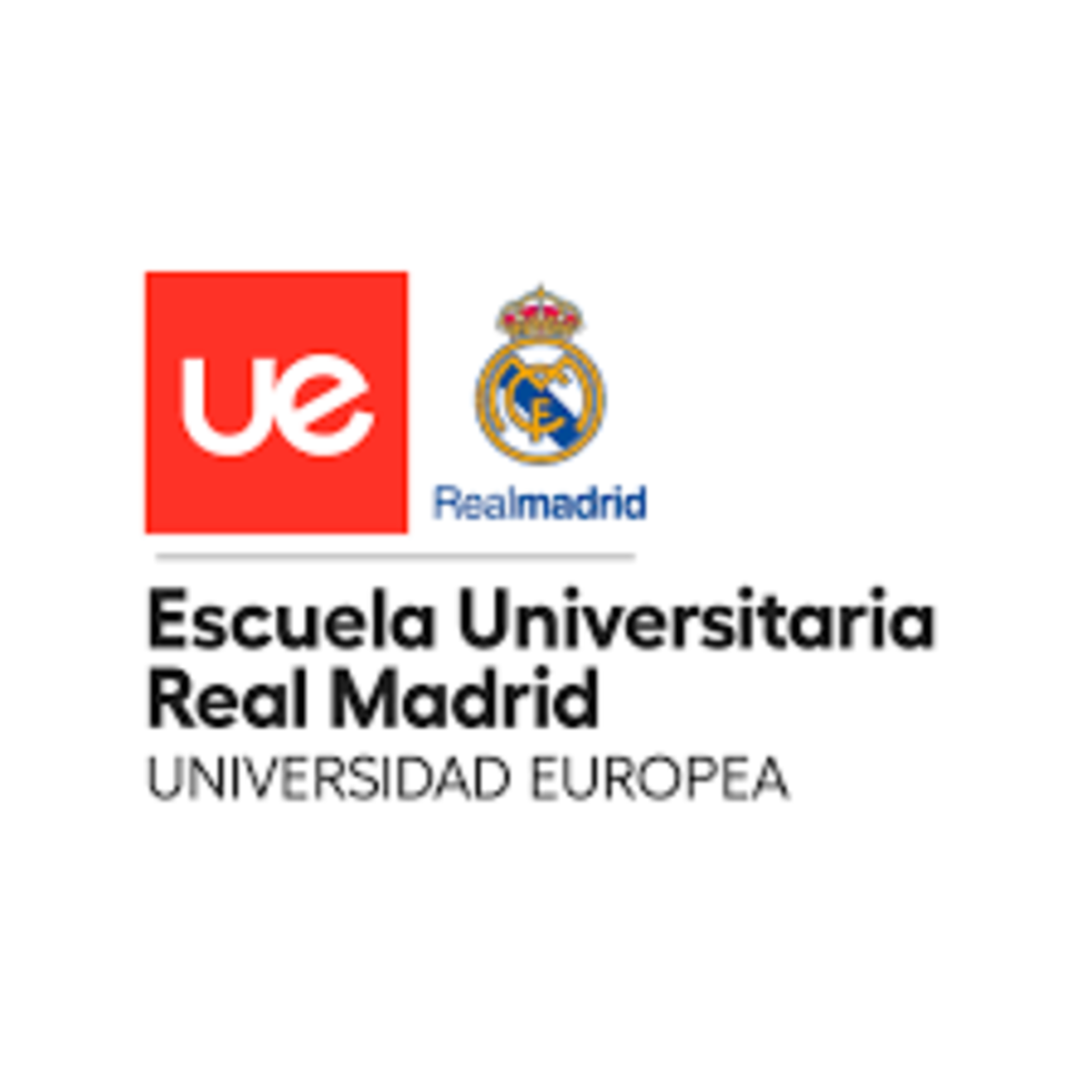
Master's in Information Systems and Sports Technologies & Digital Transformation Dual Degree Program
Program Details
Degree
Master of ScienceSchool
School of BusinessDepartment
School of Business Graduate ProgramAvailable
On campusStevens School of Business and Escuela Universitaria Real Madrid Universidad Europea (UEM) offer a highly-coordinated dual degree program in Information Systems and Sports Technologies & Digital Transformation, combining technical expertise and digital innovation, providing you with the skills to guide technology strategy across the enterprise.
In the first year, you will enroll full-time at the Stevens School of Business, taking courses within the Information Systems program (21 credits). You will also enroll part-time at UEM within the Masters in Sports Technology & Digital Transformation program (15 credits). You will take online courses in the fall and spring semesters. During the summer, you will take three courses at the Escuela Universitaria campus in Madrid, Spain. You will also have an internship with Real Madrid Next and enjoy the "White Week" experience at Santiago Bernabéu Stadium. You will receive a diploma from each school after completion (approximately 12-16 months).
Program Benefits:
Enter The $41-Billion-Dollar Sports Tech Industry: The global sports technology industry is expected to grow 17.3% annually and reach $41.3 billion by 2028, according to a July 2022 report conducted by Polaris Market Research.
Specialized Expertise: Learn the skillset to leverage technologies strategically, integrate complex systems and adopt transformative business models and processes to stay ahead in the competitive sports industry.
Internship with Real Madrid Next: Spend a summer studying and working in Madrid, Spain with a guaranteed internship with Real Madrid Next.
Careers:
Information Systems Manager
Sports Technology Researcher
Digital Transformation Specialist
Sports Business Analyst
Sports Innovation Manager
Technology Product Manager
Attend A Zoom Info Session
To learn more about this exciting program, speak to an advisor or attend an information webinar. Representatives from both Real Madrid Graduate School and Stevens School of Business will be present to answer your questions.
Speak To An Advisor
Can't make it to a Zoom session? Look through our calendar and book a one-on-one session with our advisor.
Book Advisor
Stevens Institute of Technology
Stevens Institute of Technology is a premier, private research university in Hoboken, New Jersey, overlooking the Manhattan skyline. Since its founding in 1870, technological innovation and entrepreneurship have been the hallmarks of Stevens’ education and research. Within the university’s three schools, Stevens prepares its more than 8,000 undergraduate and graduate students for an increasingly complex and technology-centric world. Our exceptional students collaborate closely with world-class faculty in an interdisciplinary, student-centric, entrepreneurial environment, readying them to fuel the innovation economy. Academic and research programs spanning finance, computing, engineering and the arts expand the frontiers of science and leverage technology to confront the most challenging problems of our time. Stevens is consistently ranked among the nation’s leaders in ROI and career services and is in the top 1% nationally of colleges with the highest-paid graduates.
About the Stevens M.S. in Information Systems Program
Today's information systems manager needs to have a thorough command not only of technology — security, compliance, analytics, mobile networks and cloud-based systems — but of business, and the way employees use technology to get the job done. The Information Systems master's program brings an analytics-intensive approach to topics like digital innovation and cybersecurity, empowering you as a decision-maker whose insights guide technology strategy across the enterprise.
Courses in the Information Systems master's program encourage information systems consultants, IT auditors, and project managers to frame problems from the perspective of a CIO who drives organizational change through technology. A curricular balance of new coding skills and leadership perspectives will turn you into a creative problem-solver able to stay ahead of the rapid pace of technology.
Curriculum for Information Systems
Courses (21 Credits)
MIS 631 Data Management
This 2-credit course focuses on data and database management, with an emphasis on modeling and design, and their application to business decision making. The course provides a conceptual understanding of both organizational and technical issues associated with data. The central theme concerns data modeling and databases. We examine organizational approaches to managing and integrating data. Among the topics included are normalization, entity-relationship modeling, relational database design, SQL, and data definition language (DDL). Discussed are specific applications such as strategic data management, master data management, and physical database design. The course concludes with a brief overview of Decision Support Systems, data warehousing and business intelligence, NoSQL databases (e.g., MongoDB) and cloud computing. The course includes a number of cases studies and modeling and design projects. Students in MIS 631 must also enroll in the associated 1-credit lab course MIS 632 Managing Data Lab.
MIS 632 Data Management LAB
This 1-credit lab course provides an experiential learning component for MIS 631 Data Management for which it is a co-requisite. MIS 632 provides hands-on experience in designing, implementing, and querying data bases. The relevant software is introduced using demonstrations, in-class exercises and homework exercises that are closely tied to and executed in synch with the conceptual and theoretical material covered in MIS 631. Specifically, students will gain hands-on experience in: (i) ERWIN - a widely used commercial tool for representing conceptual (e.g., E-R diagrams) and logical data models (e.g., relational DBMS), (ii) PostgreSQL (relational database software), (iii) SQL Structured Query Language) and (iv) MongoDB a NoSQL document data store. Students in MIS 632 must also be enrolled in the associated 2-credit lecture course MIS 631 Managing Data course.
MIS 699 Managing Emerging Information Technology
IT organizations must be able to leverage new technologies. This course focuses on how organizations can effectively and efficiently assess trends and emerging technologies in data and knowledge management, information networks, and analyzing and developing application systems. Students will learn how to help their organizations define, select, and adopt new information technologies.
MIS 710 Process Innovation and Management
This course focuses on the role of information technology (IT) in reengineering and enhancing key business processes. The implications for organizational structures and processes, as the result of increased opportunities to deploy information and streamlining business systems are covered.
MIS 760 Information Technology Strategy
The objective of this course is to address the important question, "How to improve the alignment of business and information technology strategies?" The course is designed for advanced graduate students. It provides the student with the most current approaches to deriving business and information technology strategies, while ensuring harmony among the organizations. Topics include business strategy, business infrastructure, IT strategy, IT infrastructure, strategic alignment, methods/metrics for building strategies and achieving alignment.
MIS 730 Integrating Information System Technologies
This course focuses on the issues surrounding the design of an overall information technology architecture. The traditional approach in organizations is to segment the problem into four areas - network, hardware, data and applications. This course will focus on the interdependencies among these architectures. In addition, this course will utilize management research on organizational integration and coordination science. The student will learn how to design in the large, make appropriate choices about architecture in relationship to overall organization goals, understand the different mechanisms available for coordination and create a process for establishing and maintaining an enterprise architecture.
BIA 674 Supply Chain Analytics
Supply chain analytics is one of the fastest growing business intelligence application areas. Important element in Supply Chain Management is to have timely access to trends and metrics across key performance indicators, while recent advances in information and communication technologies have contributed to the rapid increase of data-driven decision making. The topics covered will be divided into strategic and supply chain design and operations, including -among others- supplier analytics, capacity planning, demand-supply matching, sales and operations planning, location analysis and network management, inventory management and sourcing. The primary goal of the course is to familiarize the students with tactical and strategic issues surrounding the design and operation of supply chains, to develop supply chain analytical skills for solving real life problems, and to teach students a wide range of methods and tools -in the areas of predictive, descriptive and prescriptive analytics- to efficiently manage demand and supply networks.
MIS 714 Service Innovation
This course leads students through the identification, analysis, definition, and deployment of service opportunities within public and private organizations. Each of these phases is analyzed in detail to encompass the principal activities, methods, tools and techniques applied in the respective phase. Students will learn how to identify appropriate supporting techniques and information technologies for the different phases of the service life cycle, assess the role of technology, and gauge the organizational impact of service-focused operations. The objective of the course is to enable students to identify, implement and evaluate innovative service offerings in their organization.
Escuela Universitaria Real Madrid Universidad Europea
Universidad Europea's mission is to provide our students with a holistic education and shape leaders and professionals who are prepared to respond to the demands of a global world. In addition, Universidad Europea aims to empower our students to add value to their professional fields and contribute to social progress with their entrepreneurial spirit and ethical values. Universidad Europea also aim to generate and share knowledge through applied research, while also contributing to societal progress in order to place us at the forefront of intellectual and technical development.
Curriculum for Sports Tech Program
Courses (15 Credits)
M2 Sports Performance
M3 Big Data and AI in Sports Management
M6 Smart Venues
M8 Sports Technologies
M10 Internships





